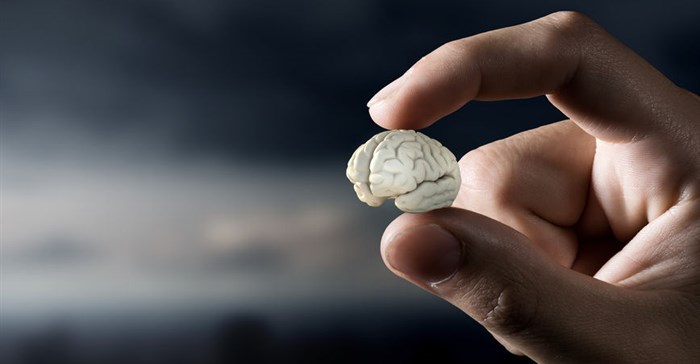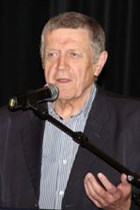I'm never quite sure what to expect at conferences and seminars. I must have been to hundreds, possibly thousands, during my career and by and large they're ho-hum affairs.
So when I heard about the “Neuromarketing Seminar” being organised by Knowledge Resources I was mildly interested until I noticed that my old friend Erik du Plessis was going to make a star turn there. Now there's a guy you don't want to miss if you ever get the chance to hear him. Second best is to read some of his books – his last one, The Branded Mind – what neuroscience really tells us about the puzzle of the brand and the brain is still available.
Ever since I can remember, the creators of advertising have been desperately trying to understand why consumers behave the way they do. When I was at the Evening Standard, (which was a world leader in classified advertising), they had a “formula” for advertising in their columns. There was “undeniable evidence” that an ad must run for at least 20 nights (sales staff enjoyed a bonus on those sales).
This “undeniable evidence” was never proven and, on reflection, was total hogwash but, curiously, it was probably right – or at least on the right track. Their mantra was that: “on the first appearance the reader doesn't notice it, on the second appearance they do – as with the third and fourth – but it was only on the fifth insertion that they actually glanced at it... and so on up to the twentieth appearance, where they actively respond to the ad.” As I said, it was basically a con job, which turned out to be reasonably accurate.
It was at that point, I think, that I realised that “common sense” was the most overlooked talent an adman can possess.
And my future in advertising was decided there and then.
Over the years I've seen so many theories but, fortunately, have been able to forget most.
At one time I worked for John Turvey (RIP) and we came up with a plan that if we knew the star signs of readers then we could instruct the copywriters to slightly alter their approach. Sounds reasonable, doesn't it? So we pitched the idea to the management of the Sunday Times and they threw us out of their offices. Undeterred, we managed to get a small sample survey (based on 100 people I think – and you'd be shocked to know how many major pieces of research are conducted on similar sized universes). Sadly, we discovered that star signs were pretty much even throughout so there was no future in it. But it was a laugh and I still think there's merit in it – somewhere.
So, off I go to the seminar to hear Erik and several other psychologists, researchers, PhDs etc., tell me how the brain works and how we can harness that information.
The first quote – actually, it was the last of the day given by Rob Van Rooyen from House of Brave, but it makes a great opener:
“Humans are feeling machines that think. They are not thinking machines that feel,” which is an approximate quote from neuroscientist Antonio Damasio in the early 1990s.
But the discussion began much, much longer ago than that.
Erik du Plessis bases much of his work on a simple “demand curve” which is founded on Homo Economicus (Economic Man) in the 19th century and back even further to Adam Smith in the mid 1700s.
It was fascinating to hear about the correlation between brand loyalty and mass action (which we see a lot of, politically, these days).
What we know is that brand loyalty is totally emotional and mostly irrational – as is mass action. There are many theorists who believed that memory is contained in a certain part of the brain, however that's been challenged and it's now widely believed that “memory” is distributed throughout the brain.
What's all that come down to? Well, “there ain't no brand loyalty that two cents-off can't overcome,” and we're fairly sure that's true – especially when a brand is on an habitual promotional platform (as many perfume and cosmetic brands are) then they may very well condition the minds of consumers to think incentive price and consequently lose loyalty.
However, it's not as simple as “emotion -v- rationality”. Using Damasio again, “Emotions are not a luxury, they are essential to rational thinking... the absence of emotion and feeling can break down rationality and make wise decision making almost impossible.”
It seems appropriate to drop in another quote from Adam Smith here: “Man is an animal that makes bargains: no other animal does this – no dog exchanges bones with another”.
But back to the seminar.
The fascinating ideas put forward and testing equipment demonstrated by David Rosenstein and Mark Drummond from Neural Sense were quite remarkable.
The entire seminar gave me a little more faith in the future for this thing called neuromarketing insofar as it's not a trendy buzz word. I'm fairly sure of that.
It was a good day and well organised. I think I may be slightly wiser than before, but these days it's hard to tell.
By the way, if you want to be part of Erik's Brand Price Loyalty Model beta experiments, then send him an email: az.oc.tcapmi@kire.
*Note that Bizcommunity staff and management do not necessarily share the views of its contributors – the opinions and statements expressed herein are solely those of the author.*





































